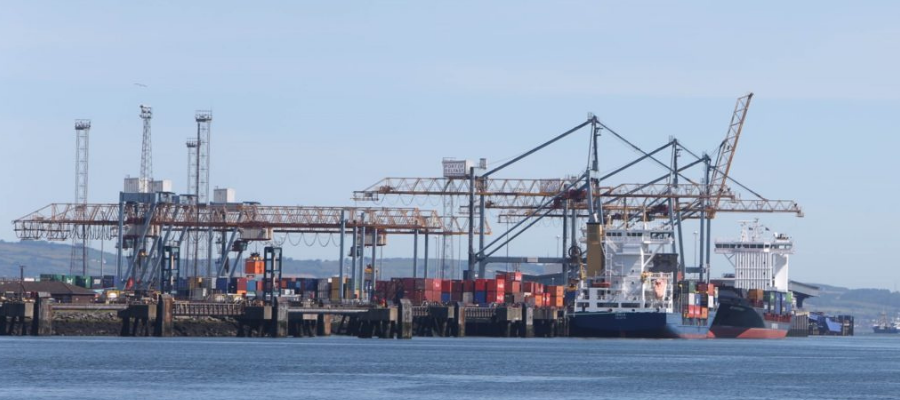🕒 Article read time: 3 minutes
Why are shipping rates soaring?

Increases in shipping rates are placing significant pressure on Northern Ireland’s logistics businesses and, in turn, are straining the nation’s complex supply chains. Logistics UK’s 2021 Logistics Report identified that global shipping container rates had increased by 185% by the end of 2020.
The situation has become worse with some shipping companies quoting the cost of hiring a 40ft shipping container to transport goods from China to Belfast increasing from $1,150 in March 2020 to $11,500 in June 2021 – and the prices look set to rise further. But while this increase is often attributed solely to issues with Brexit and the Northern Ireland Protocol, the causes are more complex and are rooted in several factors: ongoing and significant disruption at Chinese ports, a new infrastructure charge at Belfast Port, and increased rates for deep sea feeder services connecting Rotterdam and Antwerp with Belfast.
DISRUPTION AT CHINESE PORTS
As the origin country of COVID-19, the pandemic led to immediate and severe disruption at the ports in China. With the nation home to seven of the world’s ten busiest container ports – and the source of approximately 80% of world goods trade by volume carried by sea, this had a profound impact on global logistics, with vessels not being discharged or loaded with goods during the initial stages of the pandemic. While the ports recovered reasonably quickly, the disruption that the delays caused resulted in vessels and equipment out of position on shipping lines; this situation snowballed and was exacerbated by the Suez Canal blockage of March 2021. The combination of these disruptive incidents led to a severe shortage of containers which contributed to soaring prices.
INCREASE CHARGES FOR BELFAST TRADE
In the UK, the Belfast Harbour Commissioner has invested £40m in the redevelopment of the VT3 terminal at Belfast Port. The project includes the installation of two new Ship to Shore (STS) cranes, the removal of old STS cranes, and the delivery of eight new remote-controlled semi-automated Rubber Tyred Gantries (RTGs) – to name a few of the key projects.
To fund the scheme, the terminal operator will implement a new infrastructure charge from 1 July 2021 that all customers must pay. This new surcharge starts at £4 per unit from 1 July 2021, rising to £8.50 by January 2022. Based on 2018 container volumes of 127,000 units, this equates to local users paying approximately more than £254,000 in the first six months, rising to over £1million per annum from January 2022. In addition, notice for this new charge was only given on 4 June 2021 – less than a month from the implementation date. With logistics businesses operating on such tight margins – and facing huge price surges in shipping rates already – users will simply be unable to absorb this cost and will have no choice but to pass it down the supply chain to importers and exporters.
Furthermore, service providers of deep-sea containers are notifying customers of an imminent shipping rate increase of €50 for 40/45ft containers between Belfast and the primary hub ports: Rotterdam and Antwerp. Once again, as a key trading route, this will place additional pressure on businesses.
All these three factors – disruption at Chinese ports, infrastructure charges at Belfast Port, and deep-sea feeder services fee increases – are, or will be very shortly, contributing to significant cost increases for Northern Ireland businesses and affecting their financial viability in competing globally and regionally. Coupled with rising fuel costs – currently at a two-year high – and rising staff costs due to a severe shortage of lorry drivers, logistics operators are under huge financial strain. These costs cannot be absorbed and must be passed along the supply chain to the traders moving goods who are themselves already under significant pressure from trading issues relating to the UK’s departure from the EU and COVID-19.
Seamus Leheney, Policy Manager – Northern Ireland, Logistics UK, said: “As the business group representing the logistics industry, Logistics UK will continue to work with its members, the government and other stakeholders to assist industry through this challenging global landscape, as shipping rate rises place untold pressure on supply chains. Locally I have been working with and advising the Department for Economy on rising transport costs and have outlined these issues to political representatives and the NI Assembly economy committee on 7 July 2021.”
*www.logistics.org.uk/water
Published On: 01/07/2021 16:00:34

Comments Section
If you are a Logistics UK member login to add comments.